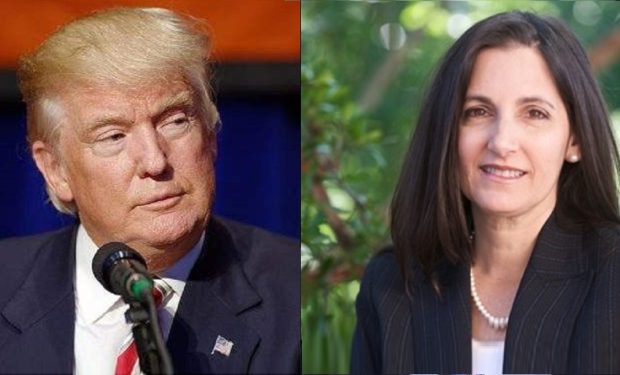Praising what she characterized as Special Counsel Jack Smith’s intrepid advance despite mitigating circumstances in the DOJ’s election interference prosecution of former President Donald Trump, former U.S. Attorney Joyce Vance says that Smith’s new filing proves that the Supreme Court’s decision to grant broad presidential immunity for “core” and “official” acts has had little impact on Smith’s allegations.
Where Smith’s scope is narrowed, due to the SCOTUS prohibitions, Vance believes it results in a more acute focus that still allows for a bounty of evidence to be presented in support of the assertion that Trump acted in a “private” capacity during the commission of most of his alleged crimes.
Even without the admission of SCOTUS-scuttled evidence pertaining to Trump’s communications with the DOJ during the time in question, which Justice Roberts indicated could be “readily categorized” as official, an abundance of damning evidence remains admissible, claims Smith’s filing with DC District Court Judge Tanya Chutkan.
The 165-page filing, reconfigured to comply with the SCOTUS immunity decision and its restrictions, gives a “clear view of what Smith believes is still on the table after the Supreme Court’s decision,” Vance reports, concluding: “The short version: just about everything.”
Vance quotes Smith’s opening paragraph, which aims head-on at the distinction between “official” and private actions, with the latter executed, Smith asserts, not in Trump’s role as President but in his role as a candidate for the presidency:
“Although the defendant was the incumbent President during the charged conspiracies, his scheme was fundamentally a private one. Working with a team of private co-conspirators, the defendant acted as a candidate when he pursued multiple criminal means to disrupt, through fraud and deceit, the government function by which votes are collected and counted—a function in which the defendant, as President, had no official role.”
DOJ
Using Vance’s metaphor, Smith’s table remains a big one, and it’s set. Smith’s new filing, which Harvard Law eminence Laurence Tribe described as “masterful,” claims an actionable understanding of the distinction between official and private acts and assures Chutkan “that nothing the Government intends to present to the jury is protected by presidential immunity.”
Trump's lawyers could have asked the Judge to stay her decision if she ruled against them. They did not. She ruled to release an already redacted version of Smith's pleading & nothing prevented her ruling from going into effect. That's how it works. https://t.co/WFwAjxSH1H
— Joyce Alene (@JoyceWhiteVance) October 4, 2024
NOTE: It remains a mystery why Trump’s lawyers failed to file a stay to delay the redacted version of Smith’s filing from being made public.
Some strategists have suggested that the revival of the government’s case against Trump, despite its containing what appears to be highly damaging evidence, can be used by MAGA during the last month of the campaign to stir up more anti-government and Trump-as-victim sentiment — and that this sentiment is more valuable politically than the risk associated with Smith’s evidence being made public.
The above calculation presumes that those still supporting Trump after the findings of the January 6 Committee and his conviction on 34 felony counts in New York won’t be moved by a new narrative of Trump’s alleged criminality, no matter its more pointed claims. These voters have, in essence, already granted Trump their own sort of immunity.
Even Tribe wondered aloud why Trump’s lawyers didn’t ask for a stay, given the weight of the allegations in Smith’s filing.
I’m curious, @AWeissmann_ , WHY Trump didn’t seek a stay. The case in support of deferring release of the filing pending an attempted interlocutory appeal was weak but not crazy, and anyway Trump hasn’t previously been deterred by the low quality of his legal arguments. https://t.co/Q0CVJWOrul
— Laurence Tribe 🇺🇦 ⚖️ (@tribelaw) October 3, 2024
